Curtain rises on cultural odyssey
Punjab Maas Festival brings the world to Alhamra's doorstep
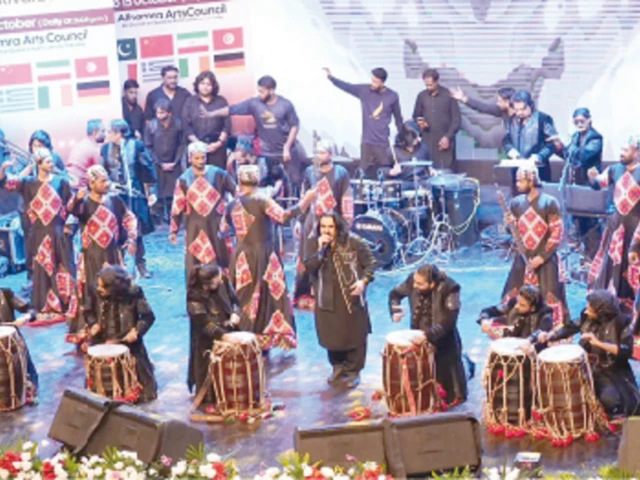
The Alhamra Arts Council has transformed into a mosaic of cultures, languages, and creative expression as the Punjab Maas International Theatre Festival 2025 continues to captivate audiences in Lahore.
Organised under the patronage of the Punjab government and in collaboration with MAAS Foundation, Velocity Marketing and Communication, and the Lahore Arts Council, the six-day event marks one of the most significant celebrations of theatre ever held in the city.
The festival, running from October 10 to 15, gathers theatre companies from seven countries - Pakistan, China, France, Greece, Iran, Tunisia, and Ireland - for an immersive exploration of drama, dialogue, and diversity.
Featuring 15 plays, including six international and nine national productions, the event also hosts five panel discussions, four interactive workshops, live folk music, and open-air performances that blend traditional and contemporary art forms.
The opening ceremony set the tone with electrifying performances that filled the Alhamra courtyard with sound and colour. Folk legend Arif Lohar took the stage with his trademark energy, his powerful vocals and rhythmic chimta igniting cheers from the crowd.
His act was followed by a mesmerising dhamal - a traditional Sufi dance - and lively Punjabi folk routines that celebrated the spirit of inclusivity and cultural pride. The air buzzed with excitement as the festival promised to be a vibrant convergence of artistic vision and cultural storytelling.
Among the most anticipated events is the panel series that seeks to bridge ideas and generations through conversation. The second day's discussion, "Theatre and Mother Languages", moderated by Ali Usman Bajwa and featuring celebrated actors Waseem Abbas and Salman Shahid, drew a large audience of students, performers, and cultural enthusiasts.
The panellists spoke passionately about the emotional honesty of theatre performed in native tongues. As one of the participants put it, "In our mother languages, we find the wisdom of our ancestors, the lullabies of our childhood, and the voices of our streets."
They discussed how performing in indigenous languages strengthens theatre's emotional communication, making each word and gesture resonate deeply with audiences.
When a character speaks in their mother tongue, the discussion noted, every dialogue and emotion lands directly in the heart of the viewer. The language that carries the prayers, humour, and idioms of a people brings authenticity to performance.
The panellists stressed that local-language theatre does not merely entertain - it connects people with their identity and gives younger generations a reason to cherish their linguistic heritage.
The conversation also touched on how native-language theatre captures local proverbs, humour, and pain, offering audiences stories that feel deeply personal. "When local issues are expressed in local languages," one speaker observed, "their truth and urgency reach the audience more powerfully."
The discussion concluded that theatre in mother tongues not only preserves linguistic diversity but also revitalises artistic innovation, inspiring new idioms, metaphors, and comedic forms unique to each culture. Workshops have also emerged as one of the festival's most engaging components.
German theatre facilitator Christian H Schroter conducted a session titled "Crossing the Boundaries of Language – Telling a Story with the Art of Pantomime," showing participants how movement and expression can transcend linguistic barriers. The session demonstrated that theatre's universality lies not only in words but in human gestures, emotions, and shared experience.
The festival's performances have drawn packed audiences each evening. Among them is 'Yeh Aurtein Kahan Gaeen?' [Where Have All the Women Gone?], a collaborative production between Alhamra and Ajoka Theatre Workshop.
Written and directed by Shahid Nadeem, the play explores the erasure and invisibility of women in political and social narratives. Through Ajoka's signature mix of satire, realism, and symbolism, the production asks hard questions about gendered silence and resistance in modern society.
Nadeem described the play as both a creative milestone and a social statement. "It highlights Ajoka's commitment to meaningful, socially conscious storytelling," he said.
"The play's strong audience response reflects its deep relevance to contemporary Pakistan." Developed under Alhamra's theatre training programme, the production is a testament to the collaboration between emerging artists and experienced mentors in fostering progressive Pakistani theatre.
International productions have added further diversity to the festival. China's Land Staging Theatre Company presented "Ugly Dad", directed by Zang Ninebei, offering audiences a glimpse into the moral and generational conflicts of modern Chinese society.
The MAAS Foundation staged "The Zero Line", exploring borders, belonging, and the shared humanity that transcends them. Later in the week, France's La Volga will perform "Monsieur et Madame O", while groups from Greece and Iran will bring "Ekthesis" and "Antigone" to the stage, respectively.
As the festival moves through its packed schedule, panel discussions continue to enrich its intellectual fabric. Themes such as "Social Change Through Theatre," "Society and Performing Arts," and "Theatre, Film and Storytelling" invite both practitioners and audiences to consider the social power of performance.
Workshops led by international facilitators like Christina Gyftaki from Greece help local students and actors explore new theatrical techniques, from expressive movement to visual composition.
Beyond the performances, Alhamra's courtyard has taken on the air of a cultural fair. Food stalls offer traditional Punjabi and Lahori delicacies, while artisans display handmade crafts, masks, and stage props. Visitors stroll between open-air stages and discussion tents, soaking in the energy that has turned the iconic venue into a living celebration of global theatre.
The festival's organisers describe it as a bridge between local creativity and international collaboration. The Lahore Arts Council, which has hosted major cultural events for decades, sees this festival as a landmark in reaffirming Lahore's role as Pakistan's cultural capital.
"The Punjab Maas International Theatre Festival brings together the world's voices in a single space," one organiser said, "but it also amplifies our own - reminding us that Pakistan's artistic heritage stands proudly on the global stage."
The event was inaugurated by Punjab's Secretary for Information and Culture, Tahir Raza Hamdani, who praised the participating groups for their contribution to cross-cultural dialogue.
He noted that the diversity of performances - from children's plays to avant-garde international productions - reflected the universality of human stories. "Theatre is where cultures meet and hearts speak," he said.
As the festival enters its final days, performances by university drama clubs, including Punjab University's 'Kaho Mujh Se Mohabbat Hai' and DramaEd's 'Red', will share the spotlight with 'Shadows of War', a collaborative piece between Tunisia's Courage Theatre and Trinity School Lahore.
The concluding night promises to be a fitting celebration of unity through art. Each evening, as the lights of Alhamra dim and the applause fades, Lahore stands reminded that theatre remains one of humanity's most profound expressions of connection.
The Punjab Maas International Theatre Festival is not only an artistic milestone but a reaffirmation of Pakistan's enduring dialogue with the world - one that speaks in many tongues, yet beats with a single creative heart.


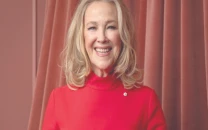


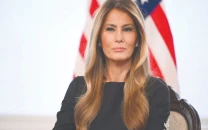
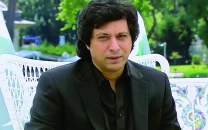

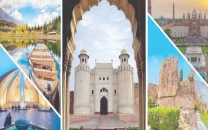












COMMENTS
Comments are moderated and generally will be posted if they are on-topic and not abusive.
For more information, please see our Comments FAQ